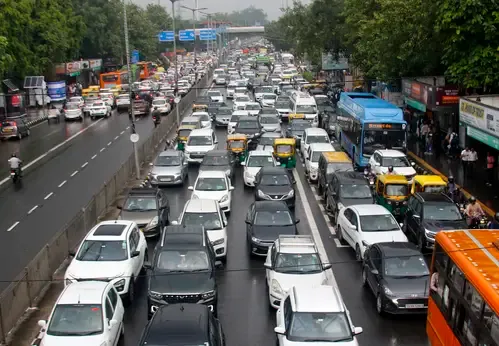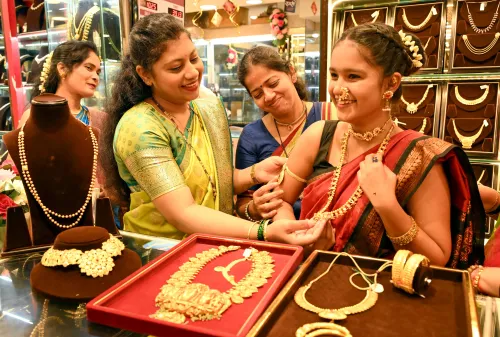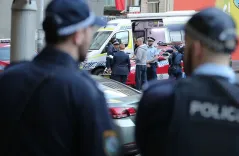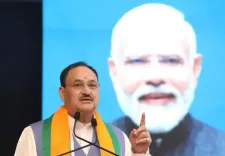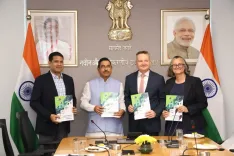Is the UN a Reflection of 1945 or 2025? Jaishankar Advocates for Immediate Reforms
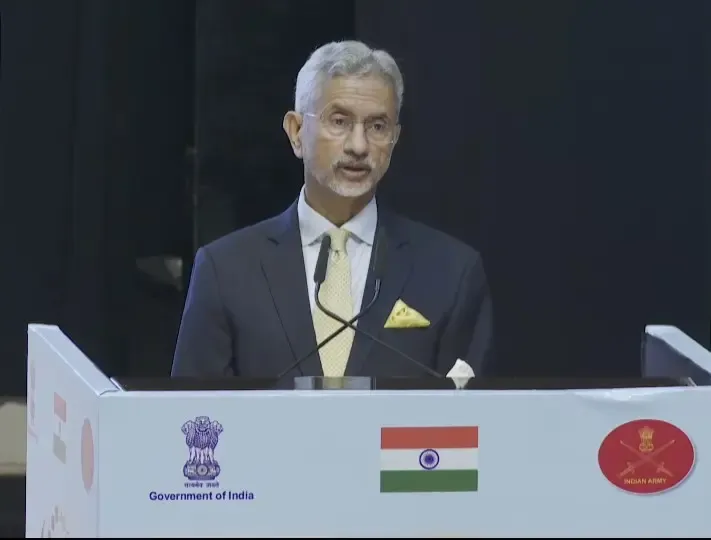
Synopsis
Key Takeaways
- Urgent reform is needed for the UN to reflect contemporary global realities.
- India's peacekeeping philosophy is based on justice and inclusivity.
- Global crises require cooperative responses rather than competition.
- Peacekeeping has become a vital instrument for the UN.
- Technology can enhance peacekeeping operations significantly.
New Delhi, Oct 16 (NationPress) External Affairs Minister (EAM) S. Jaishankar highlighted on Thursday that the United Nations continues to represent the world of 1945 instead of the realities of 2025, emphasizing the urgent need for reform.
He pointed out that the reform process is being exploited to derail the agenda, allowing historical injustices to endure.
During his address at the United Nations Troop Contributing Countries Chiefs' Conclave (UNTCC 2025) in New Delhi, Jaishankar articulated that India's approach to peacekeeping is deeply embedded in its civilizational ethos, guided by the principle of 'Vasudhaiva Kutumbakam'—the belief that 'the world is one family'.
"It is an honor to speak to this esteemed assembly of military leaders from troop-contributing nations—those who are the architects, defenders, and ambassadors of peace. You exemplify the strength of an institution that has, for almost eight decades, served as a beacon of hope in a world beset by conflict—United Nations Peacekeeping," he remarked.
He asserted that India's philosophy of peacekeeping is predicated on the notion that global cooperation must be founded on justice and inclusivity.
"India's approach to peacekeeping stems from our civilizational ethos. We view the world as one family, a vision encapsulated in the enduring phrase 'Vasudhaiva Kutumbakam'. This is not merely cultural wisdom but a perspective that underpins our worldview," Jaishankar noted.
"This is why India has consistently championed justice, dignity, opportunity, and prosperity for all societies and people. It is also the reason we place our trust in multilateralism and international collaborations," he added.
Highlighting the interconnected challenges of contemporary times, Jaishankar stated that global crises—ranging from pandemics and terrorism to economic instability and climate change—necessitate collaborative rather than competitive solutions.
"Our responses must rise above the competitive dimensions of international politics. The United Nations should be the logical starting point for such collaborations," he asserted.
Reflecting on his recent trip to New York for the United Nations General Assembly (UNGA), Jaishankar commented, "The United Nations today still mirrors the realities of 1945, not those of 2025. Eighty years is significant by any standard, and during this time, UN membership has actually quadrupled."
He cautioned that institutions failing to evolve risk becoming obsolete.
"Institutions that do not adapt face the danger of irrelevance—not just irrelevance, but a loss of legitimacy, leaving us without recourse in uncertain times," he warned.
Calling for immediate reform, the minister insisted that for the UN to maintain its effectiveness, it must become more inclusive, democratic, participative, and accurately represent today's global landscape.
He noted that the UN's credibility hinges on its ability to amplify the voices of the developing world and reflect the aspirations of the rising global south.
Jaishankar acknowledged that many UN members advocate for the expansion of both Permanent and Non-Permanent categories of the UN Security Council. However, he stated, "the reform process itself is being misused to obstruct the agenda, allowing historical injustices to persist."
He reaffirmed India's dedication to undertaking greater responsibilities within a reformed United Nations and a revamped multilateral framework.
Commending the contributions of peacekeepers worldwide, Jaishankar noted that UN peacekeeping has demonstrated what collective action can achieve when nations unite for a greater cause.
"Our peacekeepers have been a formidable force for good. These courageous individuals risk their lives to protect civilians, provide humanitarian assistance, and support fragile peace processes. They embody the true essence of multilateralism," he stated.
"Today, let us pay tribute to the over 4,000 UN and 182 Indian peacekeepers who have sacrificed their lives in the line of duty. Their legacy is a solemn reminder that we must keep their message alive," he added.
Reflecting on the evolution of peacekeeping, Jaishankar explained that while peacekeeping was not originally part of the UN's design, it has become one of the organization's most critical tools.
"Currently, it derives its mandate from decisions made by the UN Security Council. Shifting geopolitical dynamics, the complexities of global affairs, and the nature of conflicts have all influenced the requirements of peacekeeping. We all recognize that peacekeeping is the flagship endeavor and the most effective instrument of the United Nations," he stated.
He outlined several key concerns related to peacekeeping missions, emphasizing the necessity for troop-contributing countries and host states to be consulted when forming mission mandates.
He argued that mandates should be realistic, clear, and in alignment with available resources, adding that "the primary responsibility for civilian protection lies with the host state."
Highlighting the role of innovation, Jaishankar stated, "Technology and peacekeeping are interlinked and serve as a force multiplier in peacekeeping operations. As a nation open to innovation, India is prepared to be a technology demonstrator to enhance peacekeeping operational capacities."
He further underscored the need to combat misinformation and ensure the safety of peacekeepers.
"To meet the demands of strategic communication, we must work to counter misinformation and disinformation. The role of ICT is thus critically important," he noted, adding, "The utmost importance must be placed on the safety and security of peacekeepers. We must always ensure that those who attack them are held accountable for their actions."


